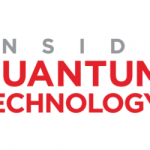Inside Quantum Technology’s “Inside Scoop:” Quantum and Clean Energy

With the rising costs of fossil fuels, specifically gasoline, many companies and organizations are interested in using clean energy, such as solar or wind-powered energy, as a power source. While these types of renewable energy sources can be helpful in lowering carbon emissions, as well as avoiding using limited resources or creating further pollution, scaling these sources to be profitable and accessible is a current challenge. Many experts posit that quantum technology could be beneficial in scaling these clean energy sources, from optimization problems to quantum chemistry.
Benefits of Quantum Computing
Current Renewable energy (RE) research theorizes many ways that quantum technology can be a benefit to this industry. According to Ph.D. researcher Obafemi Olatunji, of the University of Johannesburg in South Africa, “quantum computing can be used in advanced resource forecast and assessment, RE facility location and allocation, improved efficiency of energy conversion and storage, resources integration and classification, condition monitoring of RE infrastructure, etc.” From predicting weather patterns for the best times to harvest solar energy to optimizing a power grid for a suburban community, the versatility of quantum computing offers many benefits for those looking at using renewable energy. Other researchers have speculated that quantum computing may also be helpful in optimizing battery life using quantum chemistry, which could in turn help create more efficient electric vehicles. These are just a few of the many opportunities to apply quantum to clean energy.
Making Clean Energy Affordable
Besides the typical challenges of quantum computing (its fragility and errors), there is also the larger problem of making clean energy more affordable to implement. Historically, clean energy profits have had a difficult time keeping up with profits from fossil fuels, making them hard to implement commercially. However, thanks to the rising costs of fossil fuels, as well as a decrease in the cost of renewable energy, things may change. Solar energy’s cost alone dropped 77% from 2010 to 2018, suggesting other clean energy sources may follow. Researchers like Olatunji believe that quantum computing could make clean energy more affordable, and accessible for others to explore and use. “This [quantum computing and other advanced technologies] would also improve accessibility since the predictive capability would improve alongside grid efficiency and security architecture along the value chain,” Olatunji stated. “Resource efficiency would ensure that more people have access at affordable prices. The reduction in price would coincide with a reduction in operation and maintenance costs, consequent upon the quantum computing capability.”
The U.S. has already begun focusing on quantum computing and clean energy. In 2011 the engineering research center Quantum Energy and Sustainable Solar Technologies (QESST) was created, supported by the NSF. At QESST researchers are working on “advancing photovoltaic (PV) science, technology, and education in order to transform the existing electricity generation system.” To do this, they are focused on silicon cells, and using quantum technology to enhance these PV systems.
But Could Quantum Cost More than Clean Energy Can Provide?
In the discussions about quantum computing and clean energy, many are concerned that the power needed to run a quantum computer may cost more than its benefits to clean energy. However, as Olatunji said: “There have been serious concerns around the energy consumption of the quantum computers, but what we often forget is the fact that there are supercomputers which consume far more energy and do not perform up to the quantum computer in terms of computation power and efficiency.” With this in mind, Olatunji is hopeful that quantum computing will cost less while providing many powerful benefits. “We believe that there would be a tipping point where low energy quantum computers would be produced,” he added. “It is heart-warming to note the number of organizations fighting for quantum supremacy. The global community would not have envisaged that quantum technology will go this far, so with a sustained research effort, much can still be achieved.”
Kenna Hughes-Castleberry is a staff writer at Inside Quantum Technology and the Science Communicator at JILA (a partnership between the University of Colorado Boulder and NIST). Her writing beats include deep tech, the metaverse, and quantum technology.



















